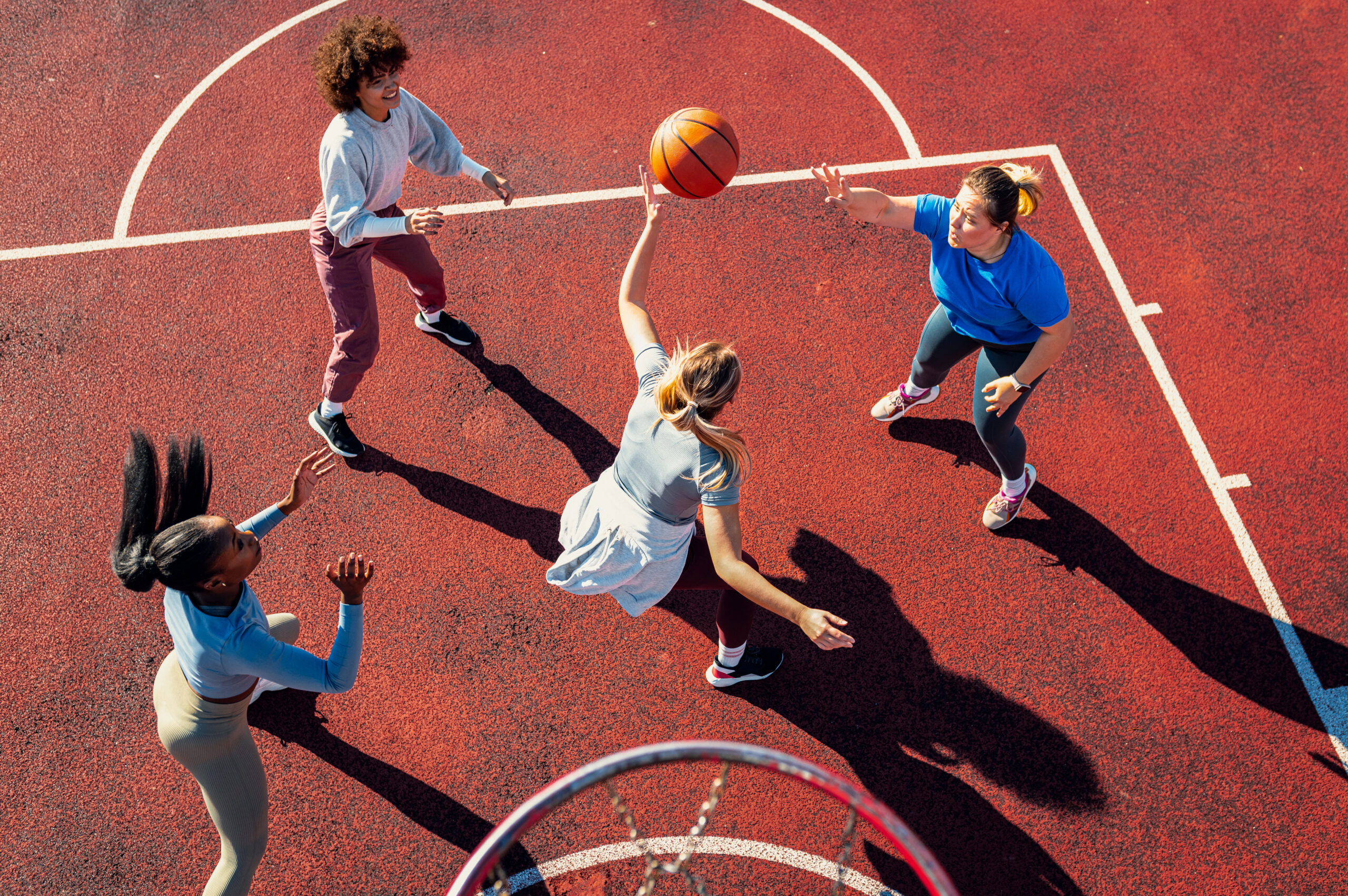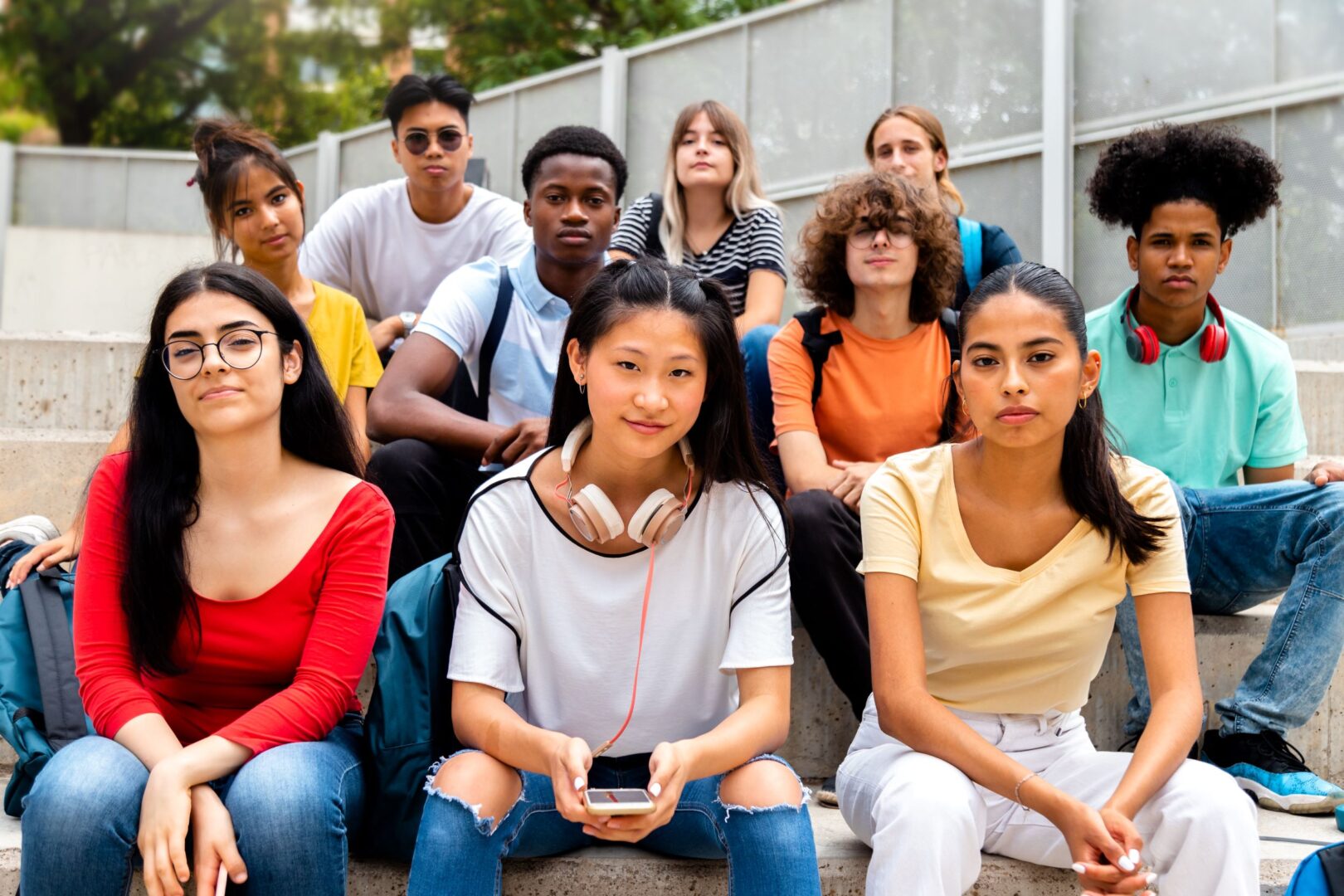On the day I played my last game, I woke up to the reality that my primary identity was no longer that of a basketball player. It was a very empowering and heartbreaking moment, a moment many young athletes face when their time playing sports is over.
Even though I no longer play, basketball taught me a lot that still impacts me beyond the court. I learned about how to lead, how to work with others, how to test my limits, and how to perform under pressure. I learned about what it means to truly commit yourself to something and also how to accept and move forward from failure. I also learned some good and some not-so-good habits related to body image and self-worth.
Youth-supporting professionals, such as coaches, can have such a powerful impact on adolescents during a time when their bodies are changing. It is imperative that a trauma-informed lens is used when working with young athletes, especially when discussing their bodies.
As someone who went through puberty later than my average teammate, I was often plagued with most coaches and adults in sports settings telling me I needed to eat more, lift more, and work hard to implement changes in my body that were not possible or necessary. This criticism led to many issues with body image, insecurities, and believing that my body was and never would be somehow “right.”
There can be two truths—improvements in strength and speed can benefit your performance as an athlete, and the constant discussion of young people’s bodies in relation to their success is harmful. It is so important that we are conscious of the ways that we talk about growing and changing bodies in sports by using a strengths-based, positive angle. It is important to uplift and celebrate the wonders that our bodies are able to do rather than focusing on how they look.
It is important to uplift and celebrate the wonders that our bodies are able to do rather than focusing on how they look.
So, how, as a coach or caregiver, can you better support young athletes?
Words are powerful–be intentional with yours!
Throughout my athletic career, every nickname I was given on a sports team had to do with my weight or some deficit that I had. I also witnessed many of my peers’ nicknames emerge as a result of a slight dig, often towards something inherent to their bodies or personalities.
As a coach, you have the opportunity to shape the narrative to one focusing on each athlete’s strength rather than playing on their insecurities. Whether it is how you talk about your own body, your players, or how they talk with each other, words are powerful, and discussing people’s bodies is never neutral—no matter how well-intentioned.
Healthy Teen Network has developed an extensive language guide that provides strategies to use inclusive, affirming language, and TrueSport has developed great guidance on what not to say when helping young athletes develop positive body image.
Stay up to date on medically accurate information for all young athletes.
Each athlete grows at their own unique pace, and we must respect where they are in their physical, cognitive, and social development when planning practices and any strength training programs. Height, weight, and hormonal fluctuations that occur during puberty can lead to injury if proper physical and cognitive fundamentals aren’t taught.
You do not need to position yourself as an expert of the human body, but it is important that you stay up to date with the latest studies on youth development and sports to best support your athletes’ healthy development. Additionally, much of this research focuses on men’s bodies and may not be applicable to a diverse group of athletes.
When chatting about this with my coworker, Bianca, she recommended reading Up to Speed: The Groundbreaking Science of Women Athletes and to look into Health at Every Size to diversify your knowledge about bodies.
Remember it is okay to slow down and take breaks—mentally and physically.
Research shows that physical activity and the social relationships that come from sport participation are a great tool for lowering anxiety and depression in young people. While this is true, It is also important to remind young athletes that success does not need to come at the cost of their mental or physical health.
In Stress, Mental Health, and the Coach-Athlete Relationship, researchers find that student athletes are less likely to seek help for mental health issues, often due to the stigma of weakness and concerns of how it will affect their athletic performance. Reminding young athletes that they don’t need to don’t need to push through pain to play and that they can put their mental and physical health first is crucial when it comes to best supporting your team.
Recognize that your athletes are young people in an environment they don’t always have control over.
We cannot assume that all resources are accessible to all young people, especially for extracurricular activities. If you’re telling a young person that they need to get in the gym more, remember that their transportation is often heavily relied on by their caregivers, who may be unable to drive them. Telling a young person they need to change their dietary habits in order to reach an impossible body standard may also not be possible due to their family’s access to healthy foods.
Sports are a great place for young people to find community and learn, but they are just one of the many systems they are a part of.
Sports are a great place for young people to find community and learn, but they are just one of the many systems they are a part of. While available resources vary by county and state, a great place to start is to find out what services and programs are available near you. Though, to best support your players, it is important to have open dialogue to get to know them and the ways that you can meet them where they are.
Accept that you will sometimes say the wrong thing, or not know what to do. What is important is what you do next.
In the world of sports, all participants are bound to make mistakes. I turned the ball over, got beat on defense, and missed plenty of game-winning shots. I also projected my insecurities on my peers and contributed to the toxic culture of body image and athletics.
It’s important to remember that coaches are also not immune to making mistakes. When you notice that something you have said may be hurtful to one of your athletes, create the time and space to talk to them about it. If you are working with an athlete and start to feel that you are not equipped to best support them, work with them and/or their caregiver to support them in finding the help they need.
While I had many experiences throughout my athletic career that defined my relationship with my body and self, I was fortunate to have many coaches that supported and uplifted me, knowing that it was more than just wins and losses. It is now up to us, collectively, to improve the narrative of body image and athletics.
Looking for more ways to be trauma-informed and healing-centered when working with young people? Check out our Thrivology resources.
Kaitlyn finds purpose in collaborating with, connecting, and encouraging like-minded people towards shared goals. From community level, youth-focused development to cross-cultural sexual health education, Kaitlyn applies an ecological lens to her work and can be heard saying, “research-informed practice scratches my brain just right.” Read more about Kaitlyn.








